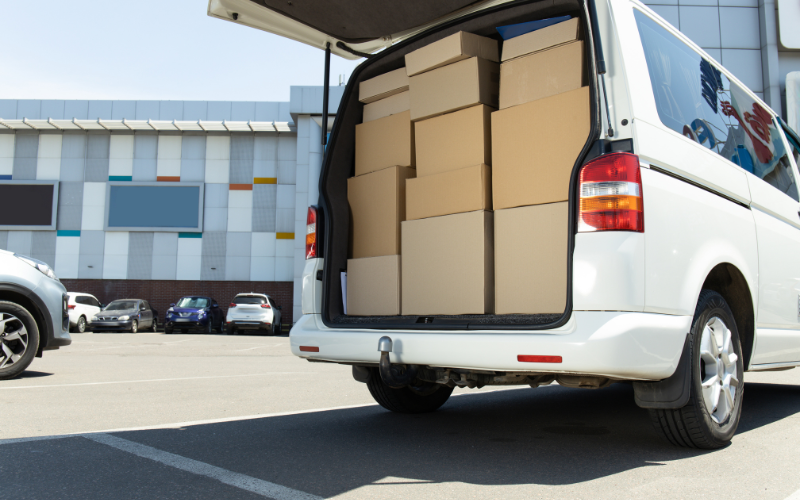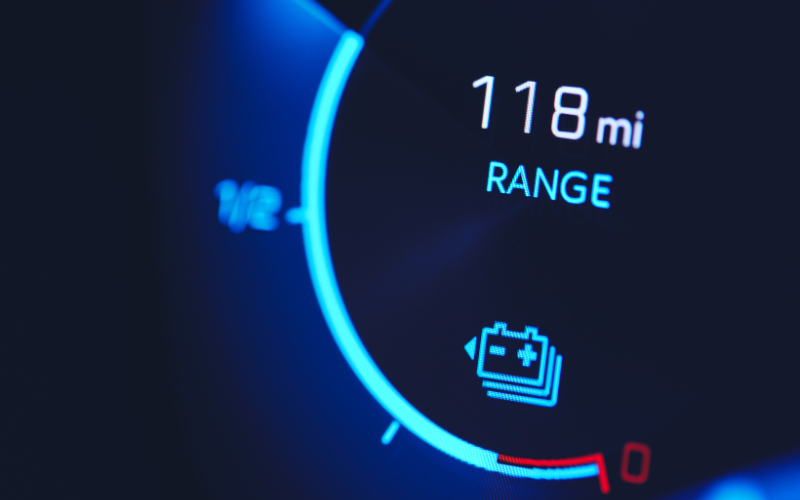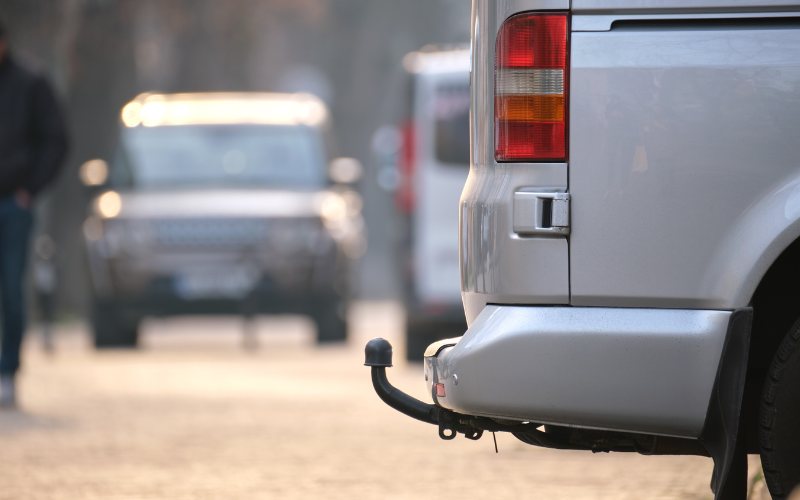Electric Van Payloads Explained

In this article, we’ll walk you through electric van payloads and how this affects towing and range.
- As with diesel vans, electric vans will have a set payload for safety reasons.
- Oftentimes, electric vans will offer a slightly lower payload due to the weight of the battery. Though that’s not to say they can’t be efficient when it comes to carrying and towing.
- The Gross Vehicle Mass (GVM), indicates a van’s maximum weight. To work out an electric van’s payload all you need to do is subtract the maximum unladen weight from the GVM.
- The amount of payload your electric van carries can have an impact on the driving range. It’s worth noting that not all electric vans will be permitted to tow as well.
Considering an electric van but not sure which one to go for? If you’re a business that relies on a greater payload to transport cargo and equipment, you might be wondering whether electric vans are up to the task.
We can confirm that they certainly are. Although there are a few things you should know about electric van payloads, and how this impacts your driving range.
Read on for all you need to know from how it works and how this differs for electric vans. As well as towing with electric vans.
How do payloads work?
First, it may be useful to understand payloads in general and what these refer to. Regardless of the powertrain, the payload is the maximum load that can be carried including:
- The van itself
- Operational fluids (e.g. fuel, oil)
- Any passengers
- Cargo
The reason that every van has a limited payload is to ensure safety on the road. Overloading a van is extremely dangerous and can result in you losing control of the vehicle. It also places more strain on the engine and transmission, meaning more wear and tear.
It’s important to always make sure you are complying with the legal payload for your van. The police and Vehicle and Operator Services Agency (VOSA) are both entitled to stop and search your van at any time. If found to be over the legal limit, you can face hefty fines and risk having your license revoked.
To work out your payload, you’ll need two figures, both of which can be found in your handbook. You’ll need the Gross Vehicle Weight (GVW) and the unladen weight – often referred to as kerbside weight. Simply subtract the kerbside weight of your van from the GVW figure to calculate your payload.
Let’s take the example of a van with the highest GVW permitted on a standard UK driving license. This would be 3.5 tonnes (or 3,500kg):
3,500kg (GVM) – 2,250kg (kerbside weight) = 1,250kg payload
How do electric van payloads differ from non-electric vans?
If you own or are considering leasing an electric van, then the payload may differ from diesel versions.
This is because electric vans have a large battery, giving them a heavier unladen weight than their non-electric versions.
This increased weight reduces the payload, meaning you’ll be able to carry fewer items. However, this may not be an issue for you depending on your business needs.
If you can make do with a smaller electric battery, you’ll enjoy a higher payload than electric vans with a larger capacity. For example, the Vauxhall Vivaro-e offers up to 1,226kg payload, which is just 232kg less than the diesel version.
Depending on how much of this you use, you may notice an effect on performance, which we’ll come onto next.
What impact does this have on the driving range?

With a diesel van, the more load you are carrying, the higher your fuel consumption. The same goes for electric vans, just with higher energy consumption.
Loading your electric van to the maximum will result in a reduced driving range since the van becomes heavier and uses more energy. Though with an extra charging stop added in this doesn’t have to be the end of the world.
Thankfully, there’s a solution in the form of the Government’s updated licensing requirements. In 2018, it was refreshed for Alternatively Fuelled Vehicles (AFVs). Allowing electric fleet owners to manage their fleets more easily.
The update raised the maximum weight limit for Category B license holders driving AFVs from 3.5 tonnes to 4.25 tonnes. Previously, this would have meant drivers would either have to grin and bear a reduced payload or get a Category C1 license which can be costly.
The new legislation has allowed more businesses to electrify their fleets, with more flexibility when it comes to payload.
To qualify for this, drivers must complete five hours of training with a registered instructor. The van must also be used for transporting goods and must not be taken outside of Britain or tow a trailer.
How does towing work with electric vans?

For standard large vans, towing is not an issue. However, this remains one of few areas where electric vans are not quite up to scratch.
Many electric vans are not permitted to tow a trailer due to weight issues, stopping problems, and range concerns. Examples of electric vans that are not allowed to tow include:
- Citroen e-Relay
- Mercedes-Benz eSprinter
- Mercedes-Benz eVito
- Peugeot e-Boxer
- Renault Master E-Tech
- Vauxhall Movano Electric
Those that are allowed to tow are, themselves, strictly limited:
- Citroen e-Berlingo – 750kg
- Ford E-Transit – 750kg (with the 3,500kg GVM model)
- Maxus e Deliver 3 –1,090kg – 1,200kg
- Maxus e Deliver 9 – 1,500kg
- Peugeot e-Partner – 750kg
- Peugeot e-Expert – 1,000kg
- Toyota Proace City Electric – 750kg
- Vauxhall Combo Electric – 750kg
- Vauxhall Vivaro Electric – 1,000kg
- Volkswagen ABT e-Transporter – 1,500kg
As with payload, the exact amount you tow with your electric van will also impact the range. Meaning it’s important to consider when choosing an electric van what your specific needs will be.
Here for all your needs at Vansdirect
We hope you’ve found this article useful and understand the importance of knowing and adhering to your van’s payload. By not overloading, you’ll reduce the risk of accidents and better maintain your van.
Looking for a new van for sale? At Vansdirect we stock hundreds of models from leading manufacturers like Citroen, Ford, Peugeot, Renault, and many more. If you’re not sure what you’re looking for, browse our latest van leasing deals for inspiration or get in touch with our expert team.
Once you’ve found the perfect van, the support doesn’t end there! With our flexible finance options like Hire Purchase, Van Fleet Leasing, and Contract Hire you can spread the costs. Plus, with our additional services like maintenance, fuel cards, van racking, and insurance, we help you make it ready for work.
We also provide helpful tips and advice in our blog to help you get the best for your business. From refinancing your van and finance for self-employed van drivers to much more.
View our latest new vans for sale and take your business to the next level at Vansdirect.
View latest electric van deals
Find this electric van article interesting?
Check out our Electric Van Hub where you'll find even more useful information such as the benefits of electric vans and electric van reviews.
















